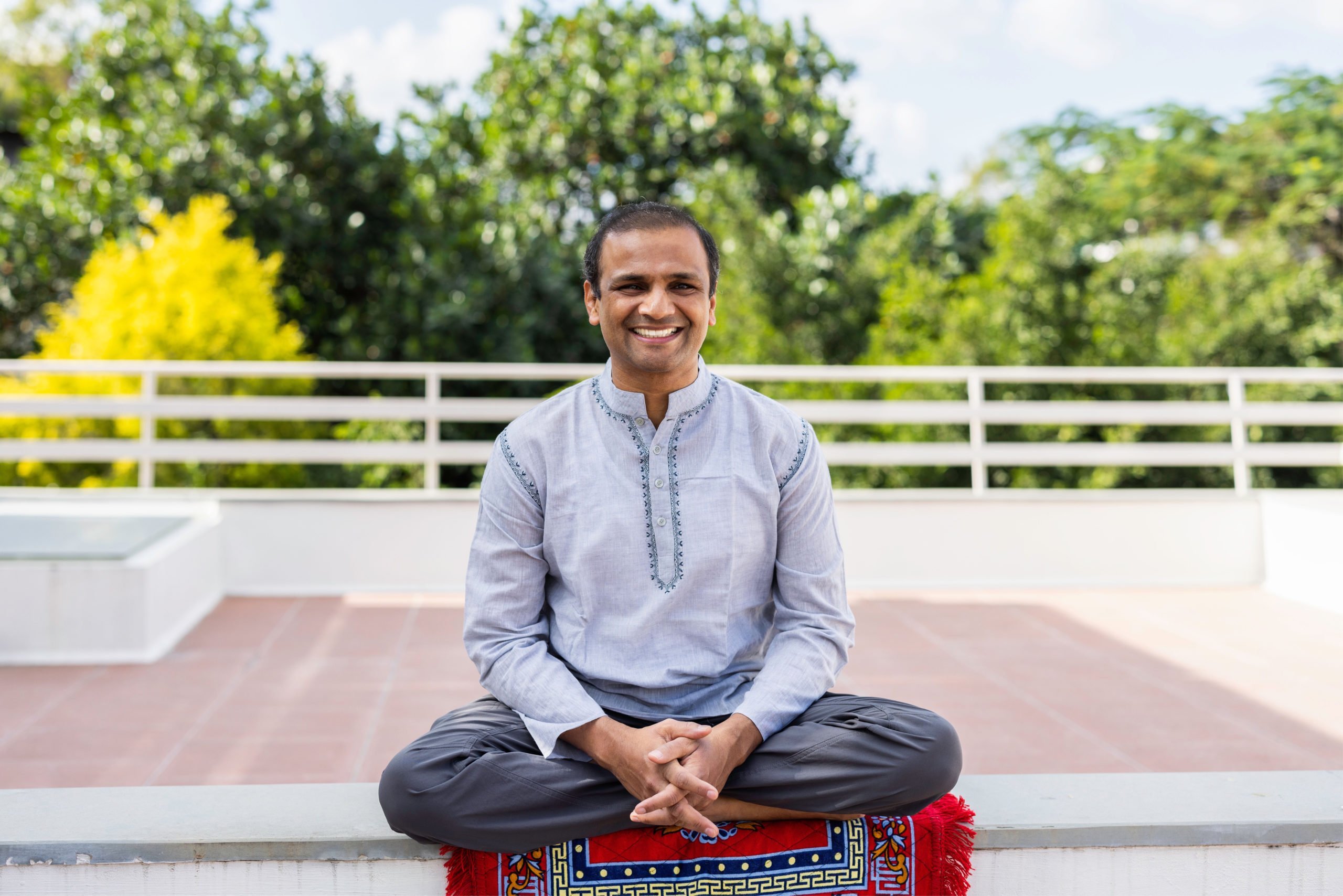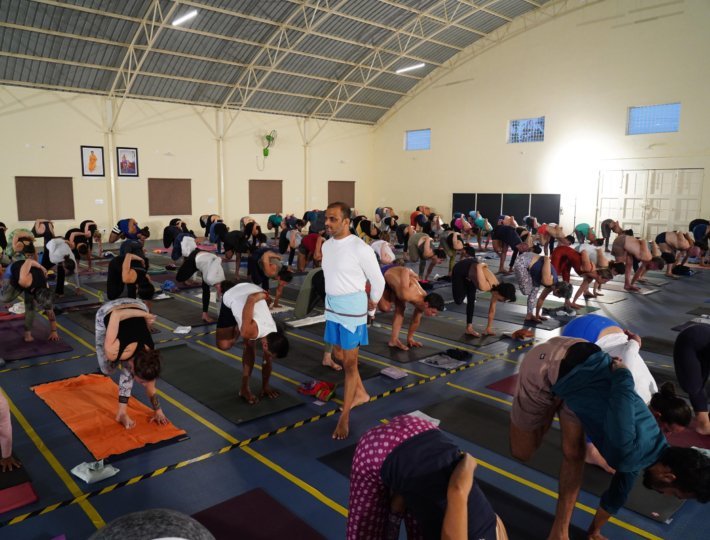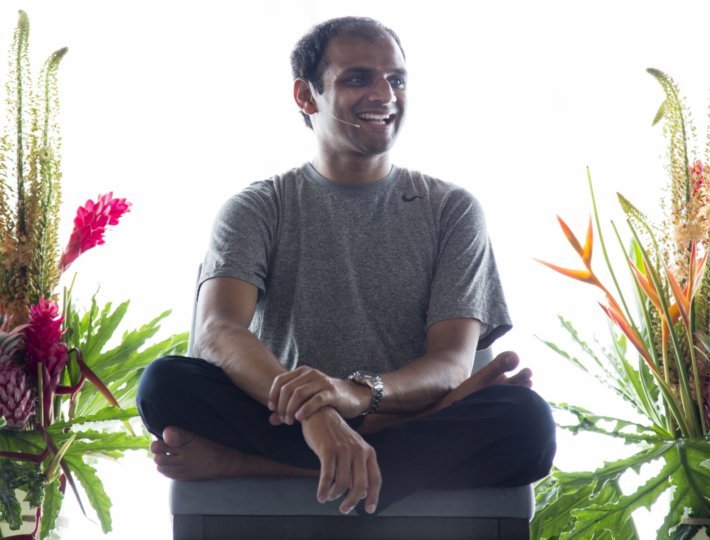In late March, I led my biggest week-long retreat ever at Shambhala Mountain Center in the Colorado Rockies, two hours north of Denver. Over the years, I’ve witnessed more and more people signing up for programs like this one, embracing the idea of taking a break from work and family life to put their own needs first. Maybe it’s the rising popularity of mindfulness or the precarious state of our nation that has many of us seeking self-care and solace—and why shouldn’t we?
These days, it’s damn-near impossible to turn on the TV, read a newspaper, scroll through social media, or even go to dinner with a friend without being bombarded with disturbing current events. More often than not, it throws you for a loop. One never gets used to bad news.
When I lead compassion-based meditation practice sessions, I always place a special emphasis on self-care. Most of us devote our lives—and sometimes our livelihoods—to taking care of others. Unfortunately, we rarely slow down long enough to question if we, ourselves, are doing okay. With that in mind, I’d like to recommend two ways to help ease your anxiety when the demands of the world are beginning to feel too much.
1. Cut Out Toxic Noise.
The reason most people join my meditation retreats isn’t just to develop their practice. It’s also about the very act of physically removing themselves from their daily habits. It’s about disconnecting from cell phones, email, work commitments, and news outlets that keep you on edge. I’m not saying you need to run off to the mountains to be more mindful. But ask yourself this: When you wake up in the morning, do you pause for self-reflection and set an intention for your day? Or do you reach for your phone, check email or social media apps, and suddenly find yourself overwhelmed with information? Being thoughtful about how we engage with technology goes a long way in reducing stress.
For example, imagine sitting at your desk, bored at work. Looking for a distraction, you pop open Facebook on another browser. Immediately, you see news about the Dakota Access Pipeline and are triggered by feelings of anger or guilt that you may not be doing enough to help. Suddenly, your go-to stress-reliever just made you even more stressed out. If you had first checked in with your intention before leaping onto a new browser to avoid discomfort, you might not have perpetuated that same discomfort.
You can look at your day-to-day existence and discern what brings you happiness and what brings you stress, even beyond your technology usage. We can’t avoid stressful triggers (sorry!), but we can try to move them on our calendar for times when we know we’ll have the most energy to deal with them. That way, we can mentally prepare ourselves to lean in and face them head-on.
For example, I have taken to scheduling specific email blocks on my calendar, so I can just do one thing at a time. This has prevented me from reaching for my phone and checking my email every five minutes, which has allowed me to show up more fully and authentically for whatever I’m experiencing at the moment. The more we cut out or cut down on our particular triggers, the more refreshed we will feel.
Related: A Celebration of the Unrecognized Caregivers Among Us
2. Beef Up Positive Influences.
If you’re the sort of person who suffers from compassion fatigue (i.e., you always put others ahead of yourself), you, more than anyone, need to work on removing energy-draining influences. Replace negative habits with one or two positive ones and watch your quality of life improve by leaps and bounds. Whenever you’re feeling most anxious is actually the best time to launch a new feel-good habit. It’s often when you’re in one of these difficult situations that you have the highest potential for new and exciting change.
Maybe you’re interested in meditating (if so, you can start building your practice at 10 minutes a day) or doing yoga (here’s a 15-minute online class)? Or perhaps you want to learn a new skill like knitting or mountain climbing? Or you want to start eating healthier? If you’re at a loss for what to do, just try getting a better night’s sleep to help you clear your mind. It’ll eventually come to you.
The overall goal here is to take time off from the negative—the stuff that only serves to perpetuate suffering—and sub in something that might bring you joy or at least clarity. If you are not taking good care of yourself, how do you expect to show up for and take care of others?
Similar to this meditation retreat, you can take mini stress-breaks each day, aimed at hitting the refresh button. You’ll never entirely remove yourselves from stressful triggers (again, if you can find a way to do that, let me know), but you can prioritize your time and energy in a way that promotes more of what you want to cultivate in your life while cutting out what may be holding you back. Rather than completely absorb or ignore the ills of life or society, focus on getting better at managing your relationship to them so you can maximize your energy levels and, therefore, bring your best self forward daily for both you and your loved ones.









Comments (2)